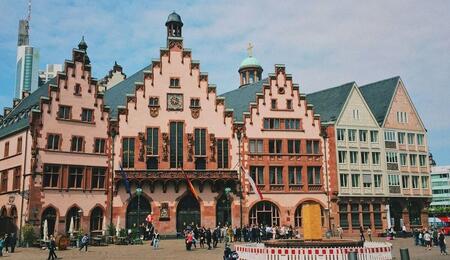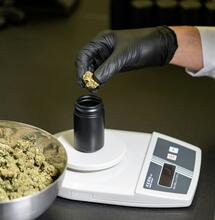Two German Cities to Launch Cannabis Pilot Programs

The authorities of Frankfurt am Main and Hanover recently announced plans to launch cannabis pilot programs in early 2025. The trials would allow for a controlled cannabis sales for a select group of people that registers with the cities. This would level up the country’s cannabis policy and basically catapult the second pilot of the German legalization model.
The first pillar of the German Cannabis Act stipulates that adults may cultivate, possess and consume cannabis for recreational purposes and become members of a cultivation association, i.e. cannabis social clubs.
The second pillar of the German legalization model foresees the implementation of regional pilot programs for adult-use cannabis retail. Cannabis pilot programs, as seen also in the Netherlands and Switzerland, are research-based and enable lawmakers and authorities to collect local data that could be used when drafting laws and regulations.
German Pilot Programs Will Start in Frankfurt and Hannover
Germany has announced that its first cannabis pilot programs, in line with the second pillar, will commence in the cities of Frankfurt and Hanover. These initiatives will be the country’s first controlled cannabis retail efforts and will allow the cities to gather valuable insights on consumption behavior, trends, public health and more. For five years, registered participants will be able to legally purchase cannabis flower and other THC-infused products in special stores set up specifically for this purpose.
The pilot program in Hanover, Lower Saxony, will be accompanied by a scientific study conducted by Hanover Medical School, in which around 4,000 people are expected to take part. The city of Frankfurt also prepares the ground for launching a pilot project for cannabis sales. The implementation of a controlled cannabis distribution system in Frankfurt will be led by Social and Health Officer Elke Voit.
The pilots are supposed to grant legal access to marijuana for a select number of users who are residents of Hanover or Frankfurt and meet relevant health requirements. Weed will be accessible to them at several points of sale in the two cities. Those that sign up with the pilot will be required to participate in scientific surveys and similar activities related to the study. Participants will not be allowed to share purchased pot products with others as they risk exclusion from the program.
German legislators originally pushed for a more open retail market, comparable to the Canadian model. However, European Union agreements proved to be limiting in that regard. Lawmakers had to opt for a multi-pronged approach that essentially consists of home cultivation, social clubs, and pilot programs.
This model was chosen with expectations to improve public health in Germany. A team of researchers affiliated with Sanity Group recently examined more than 300 unregulated cannabis products from 30 different German cities. The study found that around 80% of the samples submitted were contaminated with various harmful substances, including hairspray and banned pesticides.
“The study found that 74 percent of the samples contained bacteria and viruses, 71 percent contained hazardous pesticides and 65 percent were contaminated with fecal matter. In addition, traces of cocaine were found in 47 percent of cases and residues of hairspray in 32 percent. The samples from the major cities of Berlin, Hamburg and Munich were particularly heavily contaminated,” said the Federal Association of the German Cannabis Industry (BvCW) in a recent newsletter on the study results, Soft Secrets Germany reported.
One of the goals of the Frankfurt and Hanover pilot programs will be to investigate the possibilities of harm reduction and whether dedicated stores for cannabis can improve the quality of offered products. The study will also observe consumption behavior of the participants, including what impact weed has on their health.
Also read on Soft Secrets:
- 14 Cannabis Clubs Obtain License in Germany
















